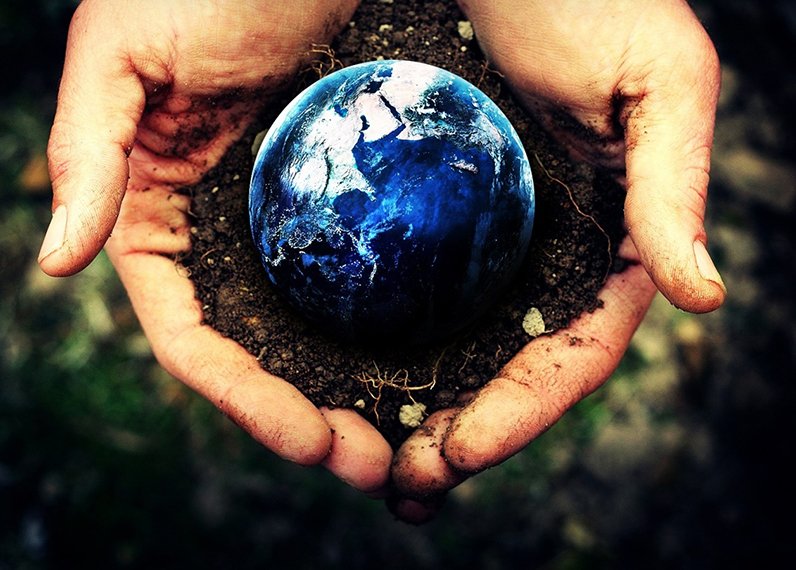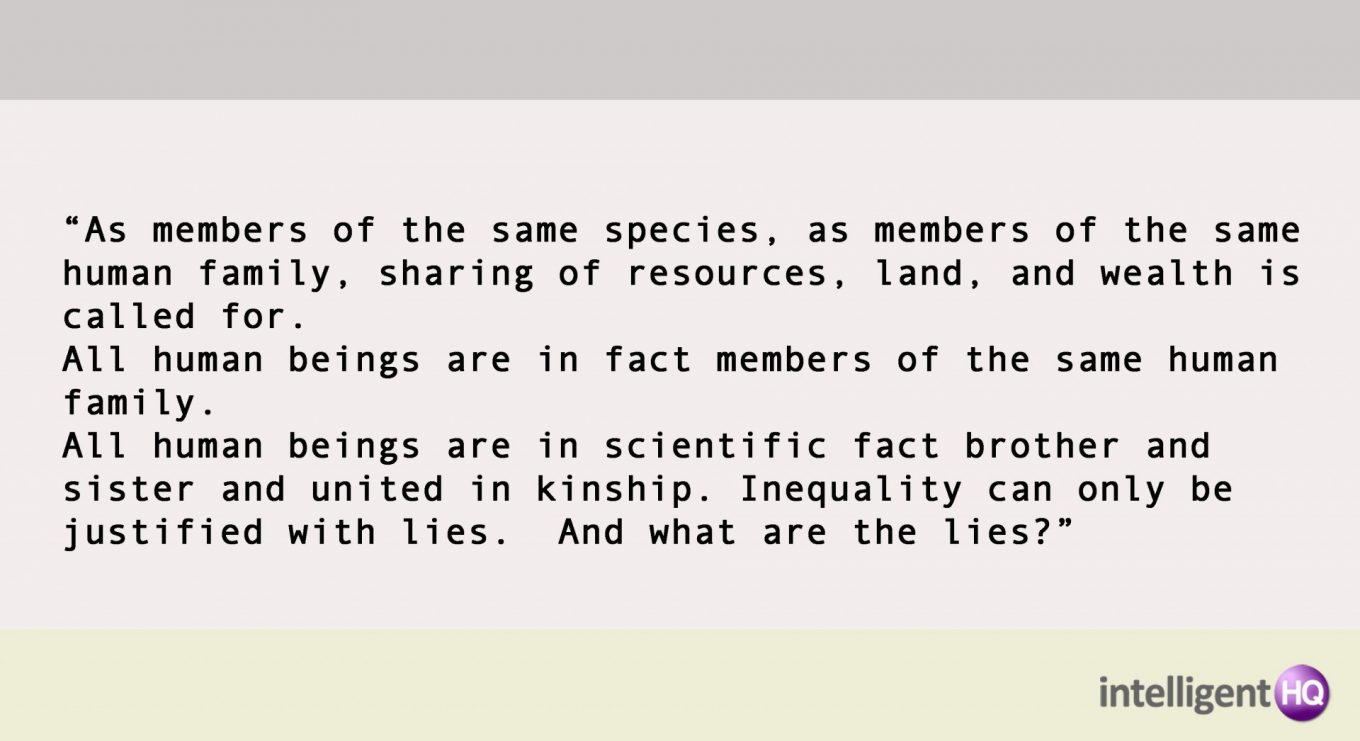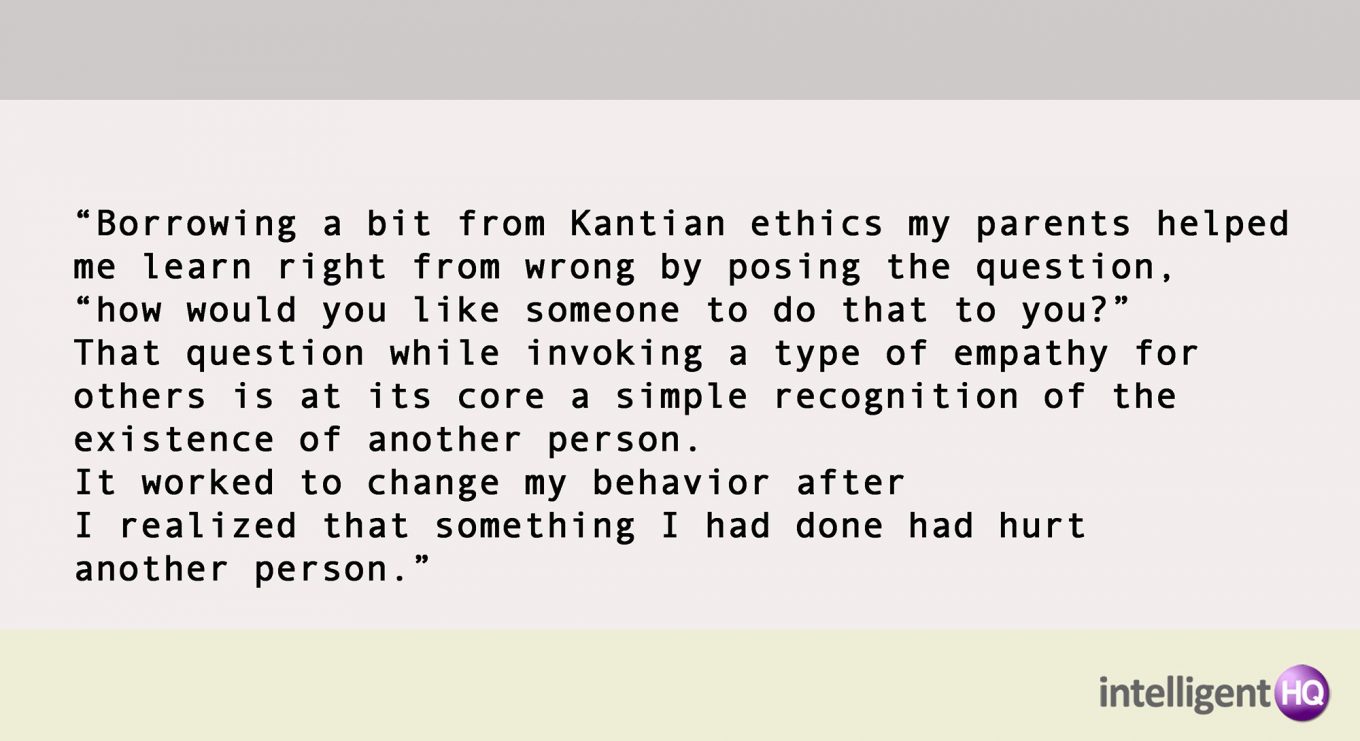
Beyond Utilitarianism
There are multiple aspects of Utilitarian thought. There is the usefulness to a particular individual or the representative individual. Then there is the usefulness to the sum of all individuals. Then there is the usefulness that amounts to the greatest good for the greatest number which suggest that the basic needs of the many should count for more than the superfluous but expensive wants of the few. Then there is the usefulness to the group to consider, where the group could be human communities, or the entire human species, or Ecology, or the Web of Life. And the good (as in usefulness) of the Whole apart from the good to individuals also is there for consideration.
Morality and ethics can be used to state why the usefulness of the greatest good for the greatest number outweighs the usefulness of a few individuals, or how the good of the whole trumps the good of either a few or even many individuals, or where the common good of the whole outweighs the many private goods. Morality and ethics can be used to judge the usefulness to Ecology to supersede the good to people alone, or to what humans “perceive” as their good, whether as a group or as perceived by individuals.
In short, morality and ethics can be used to weigh one type of usefulness, real verses perceived, broad verses narrow, human-centric verses all inclusive, to judge why a course of action is right or wrong. But all of this remains Utilitarian. Utilitarian calculation undergirds the analysis at such a basic level, that it finds a way to creep back in even unintentionally.
Is it possible to construct an ethic for Equality and Ecology and Sustainability, just because they are right? And when explaining why they are right, is that possible without resorting to how useful they are. Unfairness and inequality, pollution and endangering other species is morally reprehensible for upsetting the Divine or Spiritual or Cosmic Order and not merely for their being destructive and corrosive of usefulness but because they are manifestly wrong? But why are they wrong? Why do they upset some sort of Divine or Spiritual or Cosmic Order. If a God or Goddess or gods and goddesses are invoked, some sort of theology that presupposes a creator or creatrix, it seems easy enough to come up with a reason. If all men and women are brother and sister, if the earth was given to them to be shared, then inequality is a great affront to spirituality. But Religion can just as easily be used to justify inequality as in the poor are poor because of Karma, or its God’s will for some to be rich and others poor, or the rich deserve their success because they are more productive.
Similarly pollution and climate change could be regarded as an affront to a Creator or Creatrix as all the species of the Earth were intended by the Gods or God to exist and thrive. But Religion can just as easily be used to justify the imperiling of other species by saying that all other species exist solely for the benefit of human beings. The most pernicious form of this Bad Religion is Domination or Dominion theology which extols the idea that nature exists to be ‘aggressively’ used and exploited by humans.
No religion is actually needed to establish an ethic based on a non-utilitarian construct. The reality of science can be used to demonstrate the physical and psychic relationships and linkages between all human beings, as well as between human beings, other species, and the rest of the natural world. The basic principles of science aptly show the DNA linkages, the history of evolution, and the common substances and elements. We are scientifically and matter of fact connected and integrated and in some sense in need of one another.

As members of the same species, as members of the same human family, sharing of resources, land, and wealth is called for. All human beings are in fact members of the same human family. All human beings are in scientific fact brother and sister and united in kinship. Inequality can only be justified with lies. And what are the lies? There is no evidence that there is a God that wills the poor to be poor and the rich to be rich. But such is asserted by some who try to justify inequality. It is a justification based upon a lie for which there is no evidence. There is likewise no evidence that bad Karma determines who is poor, or that the rich whether through merit, achievement, or divine favor somehow deserve their wealth because they were in this life or some other more productive or deserving. Inequality can only be justified by an appeal to lies like these.
All the species of life are related. They co-exist in a web of life. Destruction of Ecology is an affront to millions of years of Evolution which over the ions of times has woven a balance, a harmony, a beauty. Pollution, Climate Change, Habitat Destruction, as well as assaults on entire eco-systems can only be justified with a lie, lies such as Humans are special, that only humans have a soul, that only humans are made in the image of divinity, that only humans make tools, or that only humans make rational or moral choices, that the rest of nature exists, its very purpose is for humans to use.
An ethic based upon the best of scientific understanding, and thoroughly consistent with the earth based spiritual traditions of indigenous peoples, demands that we share this earth with all members of the human family, with other species, and all the elements of the natural world.
Equality and Ecology require no lie. Equality and Ecology radiate with balance and beauty, harmony and truth. They are ends in themselves and characterized by the ability to respect and reverence others. In sharing with other people their right to exist is respected and revered, which in turn allows for the balance of reciprocal relationships. In sharing with other species, humans allow room for them to exist and flourish. Respect for other individuals, other species, other elements of nature, is an acknowledgment of their right to exist and demands at its essence sharing. Such is virtue as it respects others and is grounded in unselfish love.
Inequality and Environmental destruction can only be justified with lies. They represent a refusal to acknowledge otherness, the rights of other human beings and other species to live and to flourish. Inequality and Environmental destruction can only be justified by the selfish who consider their own good to be greater than the good of others, or even the good of the whole of humanity or the good of the entire web of life. A person who so elevates himself above others is more than just selfish, he is actually insane as insane is a separation from reality, a refusal to see clearly, to recognize the truth.
One person, one species deserves no more and no less respect than another. How can an individual think they are entitled to more than another, particularly significantly more, so much more so that others are in danger of death? Only lies motivated by selfishness and actually believed through a type of insanity emerge as possible justification.

Borrowing a bit from Kantian ethics my parents helped me learn right from wrong by posing the question, “how would you like someone to do that to you?” That question while invoking a type of empathy for others is at its core a simple recognition of the existence of another person. It worked to change my behavior after I realized that something I had done had hurt another person. It also caused me to have a few nightmares over Daddy Long Legs, but not for the usual reasons. One of my playmates routinely tortured and killed them. I often imagined how they would feel and felt very badly for the Daddy Long Legs.
Again borrowing from Kantian ethics I was often asked by my parents, “What if everyone did what you did?” I would realize that I did not want everyone to do what I had just done, and that I therefore didn’t have the right to do what I had done. If everyone took a rock from the National Park or a piece of petrified wood, or an artifact, or flower, soon there would be no rocks left for others to look at and behold. And soon there would be no more flowers, or petrified wood, or artifacts. It worked to change my behavior as I didn’t think myself so special, so apart and distinct form others that I was entitled to more than they. Setting oneself apart, in a special category, where one can do, what one would rather not that others do, is a lie, is actually more than a lie, it is insane.
All persons have dignity, and included in persons are other species and all the elements of nature. All persons deserve respect. Why? All persons deserve respect because they exist. To see another person, to really see is to marvel at the miracle of existence. The truth of existence invites respect, reverence, and reciprocity. And from such Respect, Reverence, and Reciprocity flow the ability to see and appreciate Beauty, Balance, and Harmony, what the Navajo call Hozho. And so Equality, Ecology, and Sustainability, emerge as ethical choices, not merely because they are Useful, although they are indeed useful. In the Final Analysis chosen are Equality, Ecology, and Sustainability because they possess the Beauty, Harmony, and Balance, only those with a sharing heart can see. And sharing is what keeps us human what keeps us sane.
For The Sake Of The Common Good: Breaking the Boundaries of Rational Calculation Part 2
For The Sake Of The Common Good: Breaking the Boundaries of Rational Calculation Part 1
Dr. Steve Szeghi is Professor of Economics at Wilmington College, Ohio, USA. At various times Professor Szeghi has been Department Head and Area Coordinator for Accounting, Business Administration and Economics. In 2009 Steve Szeghi co-authored, with Peter Brown, Geoffrey Garver, Keith Helmuth, and Robert Howell, Right Relationship: Building a Whole Earth Economy. In 05-06 Szeghi’s article, Lessons in Sustainable Development on the Navajo Nation, appeared in the Journal for Economics and Politics. He has been the author of many articles on social justice, environmental economics, primers in economics for social activists, and the economies of indigenous and aboriginal peoples as alternative economic systems, in numerous on-line journals such as Journal of Globalization for the Common Good Initiative, Global Media Journal, Common Dreams, and Share the World’s Resources, as well as printed journals such as Kosmos.
Professor Szeghi writes as well on the spiritual values and ethical aspects of social justice, equality, and ecology as pertaining to the economy and economic ways of thinking. He has had in recent years numerous international engagements as a speaker and presenter focusing on these topics at conferences and forums throughout the world. Starting at the age of 15, Steve Szeghi began working ardently for social justice doing substantial work with the United Farm Workers Union (Cesar Chavez) until his mid-twenties. Steve Szeghi continues to work for social justice, equality, and the environment; working with or consulting for on a pro-bono basis in recent years, environmental and labor organizations, candidates for political office who demonstrate a commitment to social justice and ecology, as well as indigenous groups and tribal governments.









